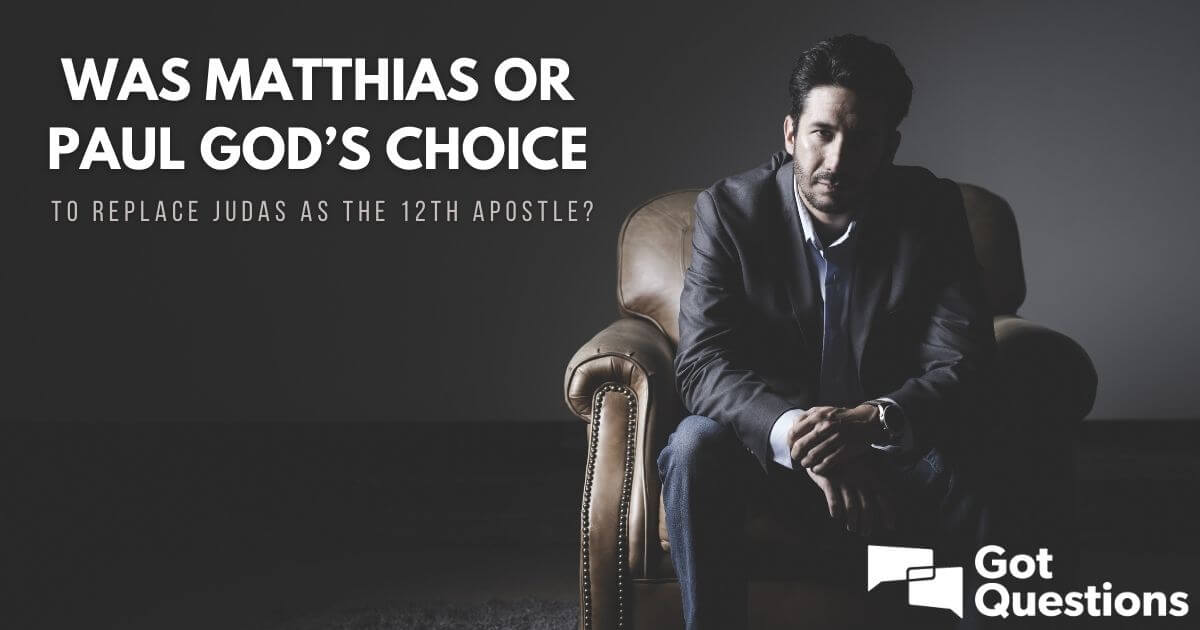- Acts 1:22
beginning
ἀρξάμενος (arxamenos)
Verb - Aorist Participle Middle - Nominative Masculine Singular
Strong's 756: To begin. Middle voice of archo; to commence.
from
ἀπὸ (apo)
Preposition
Strong's 575: From, away from. A primary particle; 'off, ' i.e. Away, in various senses.
John’s
Ἰωάννου (Iōannou)
Noun - Genitive Masculine Singular
Strong's 2491: Of Hebrew origin; Joannes, the name of four Israelites.
baptism
βαπτίσματος (baptismatos)
Noun - Genitive Neuter Singular
Strong's 908: The rite or ceremony of baptism. From baptizo; baptism.
until
ἕως (heōs)
Preposition
Strong's 2193: A conjunction, preposition and adverb of continuance, until.
the
τῆς (tēs)
Article - Genitive Feminine Singular
Strong's 3588: The, the definite article. Including the feminine he, and the neuter to in all their inflections; the definite article; the.
day
ἡμέρας (hēmeras)
Noun - Genitive Feminine Singular
Strong's 2250: A day, the period from sunrise to sunset.
[Jesus] was taken up
ἀνελήμφθη (anelēmphthē)
Verb - Aorist Indicative Passive - 3rd Person Singular
Strong's 353: To take up, raise; I pick up, take on board; I carry off, lead away. From ana and lambano; to take up.
from
ἀφ’ (aph’)
Preposition
Strong's 575: From, away from. A primary particle; 'off, ' i.e. Away, in various senses.
us.
ἡμῶν (hēmōn)
Personal / Possessive Pronoun - Genitive 1st Person Plural
Strong's 1473: I, the first-person pronoun. A primary pronoun of the first person I.
[For] one
ἕνα (hena)
Adjective - Accusative Masculine Singular
Strong's 1520: One. (including the neuter Hen); a primary numeral; one.
of these
τούτων (toutōn)
Demonstrative Pronoun - Genitive Masculine Plural
Strong's 3778: This; he, she, it.
must become
γενέσθαι (genesthai)
Verb - Aorist Infinitive Middle
Strong's 1096: A prolongation and middle voice form of a primary verb; to cause to be, i.e. to become, used with great latitude.
a witness
μάρτυρα (martyra)
Noun - Accusative Masculine Singular
Strong's 3144: A witness (judicially) or figuratively (genitive case); by analogy, a 'martyr'.
with
σὺν (syn)
Preposition
Strong's 4862: With. A primary preposition denoting union; with or together.
us
ἡμῖν (hēmin)
Personal / Possessive Pronoun - Dative 1st Person Plural
Strong's 1473: I, the first-person pronoun. A primary pronoun of the first person I.
of
τῆς (tēs)
Article - Genitive Feminine Singular
Strong's 3588: The, the definite article. Including the feminine he, and the neuter to in all their inflections; the definite article; the.
His
αὐτοῦ (autou)
Personal / Possessive Pronoun - Genitive Masculine 3rd Person Singular
Strong's 846: He, she, it, they, them, same. From the particle au; the reflexive pronoun self, used of the third person, and of the other persons.
resurrection.”
ἀναστάσεως (anastaseōs)
Noun - Genitive Feminine Singular
Strong's 386: A rising again, resurrection. From anistemi; a standing up again, i.e. a resurrection from death (its author), or a recovery.
- Acts 1:23
[So]
Καὶ (Kai)
Conjunction
Strong's 2532: And, even, also, namely.
they proposed
ἔστησαν (estēsan)
Verb - Aorist Indicative Active - 3rd Person Plural
Strong's 2476: A prolonged form of a primary stao stah'-o; to stand, used in various applications.
two [men]:
δύο (dyo)
Adjective - Accusative Masculine Plural
Strong's 1417: Two. A primary numeral; 'two'.
Joseph
Ἰωσὴφ (Iōsēph)
Noun - Accusative Masculine Singular
Strong's 2501: Joseph, a proper name. Of Hebrew origin; Joseph, the name of seven Israelites.
called
καλούμενον (kaloumenon)
Verb - Present Participle Middle or Passive - Accusative Masculine Singular
Strong's 2564: (a) I call, summon, invite, (b) I call, name. Akin to the base of keleuo; to 'call'.
Barsabbas
Βαρσαββᾶν (Barsabban)
Noun - Accusative Masculine Singular
Strong's 923: Of Chaldee origin; son of Sabas; Bar-sabas, the name of two Israelites.
(
ὃς (hos)
Personal / Relative Pronoun - Nominative Masculine Singular
Strong's 3739: Who, which, what, that.
[also] known as
ἐπεκλήθη (epeklēthē)
Verb - Aorist Indicative Passive - 3rd Person Singular
Strong's 1941: (a) To call (name) by a supplementary (additional, alternative) name, (b) mid: To call upon, appeal to, address.
Justus)
Ἰοῦστος (Ioustos)
Noun - Nominative Masculine Singular
Strong's 2459: Of Latin origin; Justus, the name of three Christian.
and
καὶ (kai)
Conjunction
Strong's 2532: And, even, also, namely.
Matthias.
Μαθθίαν (Maththian)
Noun - Accusative Masculine Singular
Strong's 3159: Matthias. Apparently a shortened form of Mattathias; Matthias, an Israelite.
- Acts 1:24
And
καὶ (kai)
Conjunction
Strong's 2532: And, even, also, namely.
they prayed,
προσευξάμενοι (proseuxamenoi)
Verb - Aorist Participle Middle - Nominative Masculine Plural
Strong's 4336: To pray, pray for, offer prayer. From pros and euchomai; to pray to God, i.e. Supplicate, worship.
“Lord,
Κύριε (Kyrie)
Noun - Vocative Masculine Singular
Strong's 2962: Lord, master, sir; the Lord. From kuros; supreme in authority, i.e. controller; by implication, Master.
You
Σὺ (Sy)
Personal / Possessive Pronoun - Nominative 2nd Person Singular
Strong's 4771: You. The person pronoun of the second person singular; thou.
know everyone’s heart.
καρδιογνῶστα (kardiognōsta)
Noun - Vocative Masculine Singular
Strong's 2589: A knower of the inner life (character, hearts). From kardia and ginosko; a heart-knower.
Show [us]
ἀνάδειξον (anadeixon)
Verb - Aorist Imperative Active - 2nd Person Singular
Strong's 322: From ana and deiknuo; to exhibit, i.e. to indicate, appoint.
which
ὃν (hon)
Personal / Relative Pronoun - Accusative Masculine Singular
Strong's 3739: Who, which, what, that.
of
ἐκ (ek)
Preposition
Strong's 1537: From out, out from among, from, suggesting from the interior outwards. A primary preposition denoting origin, from, out.
these
τούτων (toutōn)
Demonstrative Pronoun - Genitive Masculine Plural
Strong's 3778: This; he, she, it.
two
δύο (dyo)
Adjective - Genitive Masculine Plural
Strong's 1417: Two. A primary numeral; 'two'.
You have chosen
ἐξελέξω (exelexō)
Verb - Aorist Indicative Middle - 2nd Person Singular
Strong's 1586: To pick out for myself, choose, elect, select. Middle voice from ek and lego; to select.
- Acts 1:25
to assume
λαβεῖν (labein)
Verb - Aorist Infinitive Active
Strong's 2983: (a) I receive, get, (b) I take, lay hold of.
this
ταύτης (tautēs)
Demonstrative Pronoun - Genitive Feminine Singular
Strong's 3778: This; he, she, it.
ministry
διακονίας (diakonias)
Noun - Genitive Feminine Singular
Strong's 1248: Waiting at table; in a wider sense: service, ministration. From diakonos; attendance; figuratively aid, service.
and
καὶ (kai)
Conjunction
Strong's 2532: And, even, also, namely.
apostleship,
ἀποστολῆς (apostolēs)
Noun - Genitive Feminine Singular
Strong's 651: Commission, duty of apostle, apostleship. From apostello; commission, i.e. apostolate.
which
ἧς (hēs)
Personal / Relative Pronoun - Genitive Feminine Singular
Strong's 3739: Who, which, what, that.
Judas
Ἰούδας (Ioudas)
Noun - Nominative Masculine Singular
Strong's 2455: Of Hebrew origin; Judas, the name of ten Israelites; also of the posterity of one of them and its region.
abandoned
παρέβη (parebē)
Verb - Aorist Indicative Active - 3rd Person Singular
Strong's 3845: To transgress, violate, depart, desert. From para and the base of basis; to go contrary to, i.e. Violate a command.
to go
πορευθῆναι (poreuthēnai)
Verb - Aorist Infinitive Passive
Strong's 4198: To travel, journey, go, die.
to
εἰς (eis)
Preposition
Strong's 1519: A primary preposition; to or into, of place, time, or purpose; also in adverbial phrases.
his
τὸν (ton)
Article - Accusative Masculine Singular
Strong's 3588: The, the definite article. Including the feminine he, and the neuter to in all their inflections; the definite article; the.
[rightful]
ἴδιον (idion)
Adjective - Accusative Masculine Singular
Strong's 2398: Pertaining to self, i.e. One's own; by implication, private or separate.
place.”
τόπον (topon)
Noun - Accusative Masculine Singular
Strong's 5117: Apparently a primary word; a spot, i.e. Location; figuratively, condition, opportunity; specially, a scabbard.
- Acts 1:26
Then
καὶ (kai)
Conjunction
Strong's 2532: And, even, also, namely.
they cast
ἔδωκαν (edōkan)
Verb - Aorist Indicative Active - 3rd Person Plural
Strong's 1325: To offer, give; I put, place. A prolonged form of a primary verb; to give.
lots,
κλήρους (klērous)
Noun - Accusative Masculine Plural
Strong's 2819: (a) a lot, (b) a portion assigned; hence: a portion of the people of God assigned to one's care, a congregation.
and
καὶ (kai)
Conjunction
Strong's 2532: And, even, also, namely.
the
ὁ (ho)
Article - Nominative Masculine Singular
Strong's 3588: The, the definite article. Including the feminine he, and the neuter to in all their inflections; the definite article; the.
lot
κλῆρος (klēros)
Noun - Nominative Masculine Singular
Strong's 2819: (a) a lot, (b) a portion assigned; hence: a portion of the people of God assigned to one's care, a congregation.
fell
ἔπεσεν (epesen)
Verb - Aorist Indicative Active - 3rd Person Singular
Strong's 4098: A reduplicated and contracted form of peto; probably akin to petomai through the idea of alighting; to fall.
to
ἐπὶ (epi)
Preposition
Strong's 1909: On, to, against, on the basis of, at.
Matthias;
Μαθθίαν (Maththian)
Noun - Accusative Masculine Singular
Strong's 3159: Matthias. Apparently a shortened form of Mattathias; Matthias, an Israelite.
[so]
καὶ (kai)
Conjunction
Strong's 2532: And, even, also, namely.
he was added
συνκατεψηφίσθη (synkatepsēphisthē)
Verb - Aorist Indicative Passive - 3rd Person Singular
Strong's 4785: To be voted or classed with. From sun and a compound of kata and psephizo; to count down in company with, i.e. Enroll among.
to
μετὰ (meta)
Preposition
Strong's 3326: (a) gen: with, in company with, (b) acc: (1) behind, beyond, after, of place, (2) after, of time, with nouns, neut. of adjectives.
the
τῶν (tōn)
Article - Genitive Masculine Plural
Strong's 3588: The, the definite article. Including the feminine he, and the neuter to in all their inflections; the definite article; the.
eleven
ἕνδεκα (hendeka)
Adjective - Genitive Masculine Plural
Strong's 1733: Eleven. From heis and deka; one and ten, i.e. Eleven.
apostles.
ἀποστόλων (apostolōn)
Noun - Genitive Masculine Plural
Strong's 652: From apostello; a delegate; specially, an ambassador of the Gospel; officially a commissioner of Christ.


